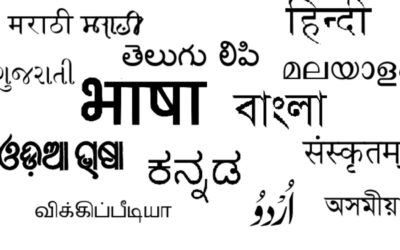I work as a sexuality education facilitator with non-profits across the education and gender sector. After a year long virtual existence, I took up my first offline project with a Jaipur based non profit organization. My role was to design workshops in senior schools of Dhaulpur in Rajasthan. The end goal would be to get some visual representations from students on what they thought about menstruation, gender inequality and agency to bring change. I had three hours with the students in each school and the idea was to first help them open up on these topics, and then to provide them with ways to express their level of understanding of these topics on A3 sheets. We would then use these visuals to create visual aids for these schools in the future – visuals for students and by students!
The non profit had been partnering with a bigger national level organisation, which was even funding it. My failure happened when I quit, right after one month. One could ask, what would another month even matter to you? You could have earned double! You shouldn’t have left the project unfinished. What about your responsibility? Couldn’t you find a way out? Even though I myself had questioned so much, the reason I left was a battle between my values and that of the organisation.
My entry into the social sector has been through India Fellows, and as part of the fellowship, the concept of ‘values’ was drilled vigorously into me. My own values have started to matter a lot to me post fellowship, as I have started doing short term projects with different organisations with very different value-systems. For some it’s more important to integrate with the community, for some it is more important to deliver systematically, for some nothing is valuable unless it is documented and recorded to be analysed. There is a certain way in which even this organisation was working and they had to follow a hierarchical way of decision making. Every action of mine would be carefully scrutinised for any mistakes, which was helpful on some level but also making me feel claustrophobic. For me, trust in my work and fair autonomy is important.

I had designed the workshop in a way where I would be personally conducting focused workshops in three schools on three different days, and simultaneously there would be a mass poster making competition held in six other schools throughout the district. This would ensure some quality focused work and some quantity mass work. This meant that we had assumed that the mass competition would not be getting a lot of result in terms of quality work, that’s why the need to do focused intervention. But numbers also mattered, so we trained the school teachers to conduct the competition. On the evening before the competition was to be held, we were told from the funding organisation that we must accompany the teachers to the mass workshop schools and ensure that the competition is held smoothly. This would push the dates of focused workshops and our presence would be equally there for both the designs.
For me it was an alarming signal, they were lacking trust in the work on three levels. First, they lacked trust in the teachers in honestly and efficiently conducting the competition. Second, they lacked trust in their field staff who would already be there to support the teachers. And third, they lacked trust in us and therefore me, the design was made keeping the risks of poor quality in mind, and now we had to just oblige with this big funding organisation. I felt so many emotions that day.
- I was angry that I had to change my plan, but there was more than my attachment to the plan to consider.
- I was embarrassed to face the teachers who I had trained and showed immense trust in. Now I would visit them and oversee their work as if I didn’t believe they could do it themselves.
- I also felt extremely ashamed of the non profit I had decided to consult with, were they spineless? Couldn’t they stand up to the funders and tell them that we had well thought our plan and will stick to it?
I had put a lot of effort in designing each aspect of the sessions, I have been working in the field for a year and seen many designs doing their magic. For me my work and my integrity was paramount, and without a question they would change my plans.
They would sit with me for hours to edit my work, and it hurt my ego too on some level. I wanted to work WITH someone, not UNDER someone. So when this situation dropped on my head, I had to carefully consider what my next steps should be. I stood my ground and put a lot of pressure on the team, the founder and asked to be trusted. But ultimately I had to tell the team that once all workshops are over and we return back home from the field, I would not be continuing the project.
Over the past two years since the fellowship got over, I have pondered over whether I have a commitment phobia or are some things really meant to be left. The only way to find that answer would be to dig deeper into what made me want to quit. What was I not understanding and not being able to work around?
- Organisations sometimes have to forego their integrity and quality of work to keep funders happy. Luckily I was not an employee there and neither was this the organisation I had chosen to commit to. I was free to leave and be my own self with my own rules and values.
- Sometimes NGOs don’t trust each other and their team. I was also not ready to spend another month bargaining my values against their irrational demands. They would have to trust my work half way and I would only then be able to trust them the other half.
I had spent the entire evening discussing my point of view with the founder of the non profit, and the entire team was alibi. He explained to me how accommodating has to be second nature to any organisation in the social sector, how it is important to find ways around challenges and not fight every little battle. This was to save the energy for bigger battles. From my perspective, this was MY big battle. He told me at last that I should not leave the work, and it was a decision I would regret. It’s just been a few months and I can’t say that I regret the decision to leave. But I did fail the project, I even failed the team who I left midway because I had the privilege to.
For next time, I am just going to follow one mantra – “get to know the organisation as well as you get to know the project!” Even for short term projects they are going to be someone you want to full heartedly commit to. The values that the organisation holds dear might not be the same as yours. For me my integrity was important, and for them accommodation was important.





0 Comments